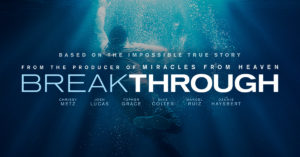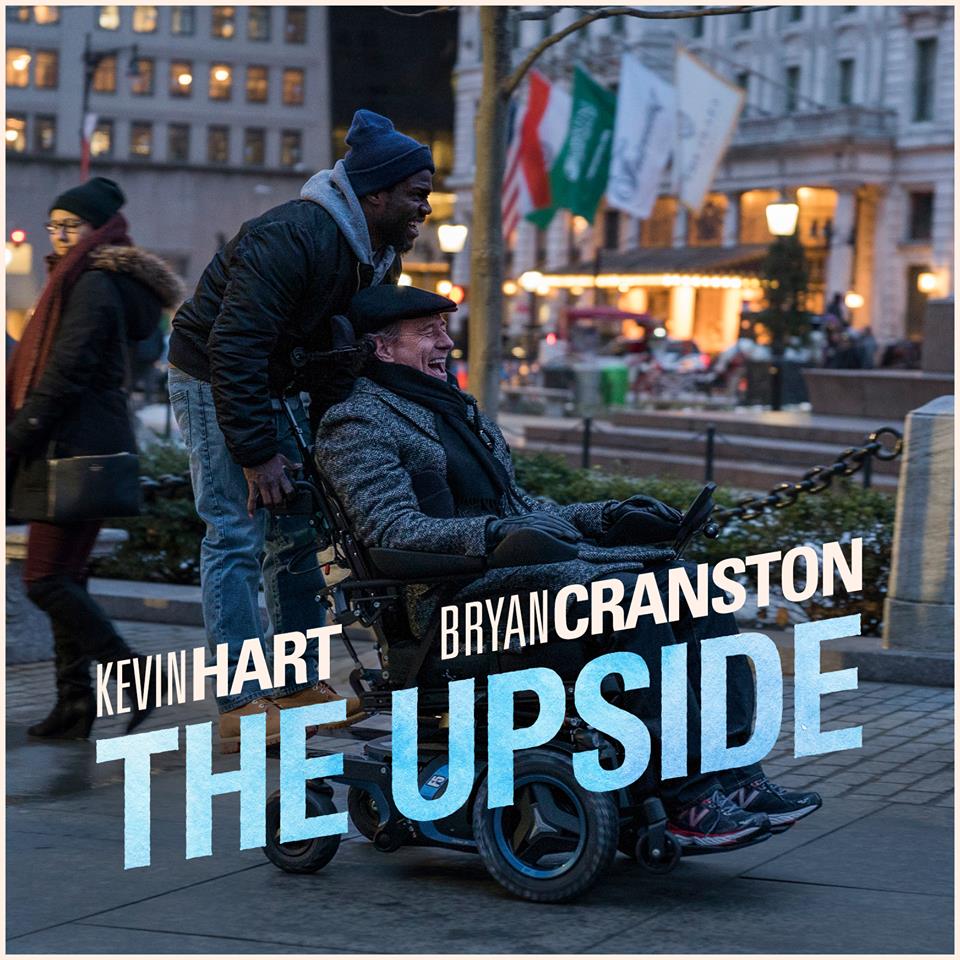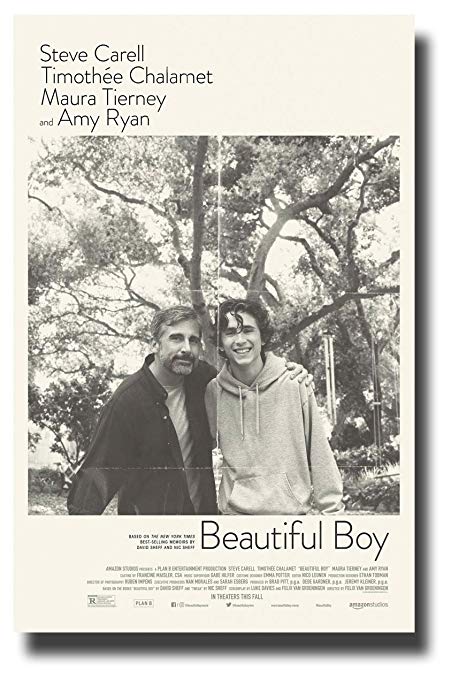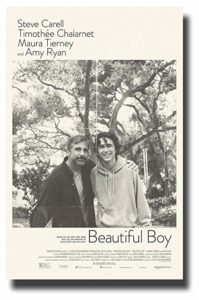Breakthrough
Posted on April 16, 2019 at 5:30 pm
B-| Lowest Recommended Age: | Middle School |
| MPAA Rating: | Rated PG for thematic content including peril |
| Profanity: | None |
| Alcohol/ Drugs: | None |
| Violence/ Scariness: | Peril, serious accident, critical medical condition |
| Diversity Issues: | Theme of trans-racial adoption |
| Date Released to Theaters: | April 17, 2019 |
| Date Released to DVD: | July 15, 2019 |

The movie also makes it clear that a very large community contributed to the boy’s recovery. Whether they were divinely inspired or not, they played an essential role. Nevertheless, this movie, the last to be issued from the now-Disney-owned Fox division producing Christian faith-based films, is preaching to the choir. It is likely to deliver what they are looking for, but it is unlikely to reach a broader audience as entertainment or as testimony. Even with a strong cast and a dramatic rescue, this movie is not created for or intended for those who are not already on board with the idea of a very devout family experiencing a miracle. Those who are will find this a touching, inspiring story well told and well performed.
Joyce and Brian Smith (“This is Us” star Chrissy Metz and Josh Lucas) live in a comfortable suburban home with their teenage son John (Marcel Ruiz), a student at the local Christian private school and star of the school’s basketball team. He is starting to have some teenage broodiness, beginning to deal with being adopted. He loves his parents but feels the loss of the people he never knew who gave him up. When his teacher assigns an oral report on family history, he does not even try.
And then one day he and two of his friends decide to play tag on a frozen river. The ice cracks, and they fall through. Agonizing minutes tick by as rescue workers try to grab John, who has sunk unto the water. Tommy Shine (Mike Colter of “Girls Trip” and “Luke Cage”) hears someone say, “Go back.” Later, no one who was present will say that he said or even heard those words.
John is trapped for 15 minutes and, once he is at the hospital, has no pulse for nearly half an hour. All the medical indicators are that he is past hope. But his mother insists he will come back, and she prays “boldly” — something she had just recently said she was not sure she understood in a Bible study group.
Joyce has some lessons to learn. She has been prideful and judgmental. She has not been careful about her own health and that makes it harder for her to help her family. But Jason (Topher Grace), the new preacher she dismissed as too secular (he brings in a Christian rock band and wears jeans on the pulpit when he uses “The Bachelor” as a kind of parable) turns out to be a true minister. He tells her he cannot change the outcome, but he can walk there with her.
We may not agree on why John recovers. This cast makes us glad and relieved that he does, even if the story veers into smugness that undermines its message.
Parents should know that the story concerns a very serious accident involving teenagers and critical medical conditions.
Family discussion: Why didn’t John want to do the report about his family? Why was it hard for Joyce to trust Jason, and how did that change?
If you like this, try: “Miracles from Heaven”









